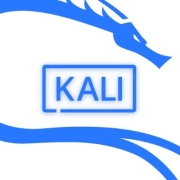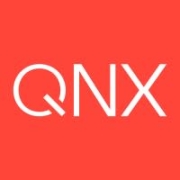Operating Systems (OS) for Business are essential for managing hardware and software resources within an enterprise environment, ensuring seamless operation and execution of tasks.
OS for Business typically support crucial applications and services, optimizing overall productivity and efficiency. They provide the necessary platform for deploying custom-built and third-party applications, while maintaining system security and stability. Businesses commonly choose solutions based on factors like support, features, security, and compatibility with existing systems and infrastructure.
What features should businesses look for in an OS?In the finance sector, OS for Business are implemented to support high-frequency trading platforms, real-time data analysis, and customer relationship management systems. In healthcare, they ensure the secure handling of patient records and the smooth operation of diagnostic applications.
OS for Business are critical for ensuring efficient workflow management and robust operational infrastructure within organizations.




































The operating system is the most important piece of software, without which the computer cannot function. The OS manages all the software and hardware on the computer or mobile device.
Typically, a computer or device will have several computer programs running. All of these need access to the central processing unit (CPU) memory, and there is a need for a central system that coordinates it all. That is the function of the operating system.
Since the task of the OS is to allow you to run the programs on your device, most operating systems will provide a graphical user interface (GUI), which allows you to interact with the computer.
Every device with a computer chip uses an operating system. This includes not only computers but also computerized devices like:
Operating systems come preloaded into the device to allow it to function.
There are seven main types of operating systems:
Operating systems manage and coordinate all programs and applications on computers and mobile devices. Some of the functions of an OS include:
Operating systems problems are very common. The OS can become prey to viruses, malware, or installation problems. Cookies and temporary files can clutter the system and slow it down.
Computers may crash because of errors in the operating system software or in the hardware. As the OS provides the interface between applications and the hardware, there can be a number of errors in this interaction. One of the most common is when the OS tries to access an incorrect memory address.
Other errors can send the OS into an infinite loop. In such cases, the system locks and needs to reset. The OS can also crash when it doesn’t manage the system resources correctly.
Diagnosing the potential causes of an OS crash is not always easy, but an IT professional can help you figure out what the issue is.
Linux offers several advantages for business solutions, particularly cost-effectiveness, security, and flexibility. As an open-source Operating System, Linux allows you to customize applications to suit your specific business needs. There are no licensing fees, reducing overall costs. Its robust security features make it highly resistant to malware and viruses, helping to protect sensitive business data. Additionally, Linux's scalability makes it suitable for businesses as they grow and require more comprehensive IT solutions.
How can businesses ensure the security of their OS for Business environments?Ensuring security in Operating Systems for Business requires a multi-layered approach. Regularly update your OS and software to patch vulnerabilities. Utilize firewalls and antivirus programs to detect and neutralize threats. User access controls should be implemented to limit access to critical systems. Educating employees about cybersecurity best practices can prevent breaches caused by human error. Consider using encryption for sensitive data to protect it from unauthorized access.
What role does OS virtualization play in business?OS virtualization plays a crucial role in business by increasing efficiency and resource utilization. It allows a single physical server to run multiple OS instances, helping businesses save on hardware costs and energy consumption. Virtualization improves disaster recovery capabilities, as virtual machines can be backed up and restored easily. It also simplifies the testing and deployment of applications by providing isolated environments for development and production.
Why is cloud integration important for OS in business?Cloud integration is vital for an OS in business because it enhances scalability, flexibility, and collaboration. By integrating cloud services with your OS, you can easily scale resources up or down based on demand. This flexibility allows teams to work from anywhere, fostering collaboration and productivity. Cloud integration also reduces the need for substantial hardware investments and drives innovation by enabling access to a wide range of cutting-edge technologies and tools.
How does automation improve OS management in business?Automation significantly improves OS management by reducing manual workloads and minimizing errors. Automated systems can handle routine tasks such as updates, patch management, and system monitoring. This increases efficiency, allowing your IT team to focus on strategic initiatives. Automation tools provide rapid insights and alerts on potential issues, enabling proactive maintenance and minimizing downtime. It facilitates compliance by ensuring processes adhere to regulatory standards consistently.